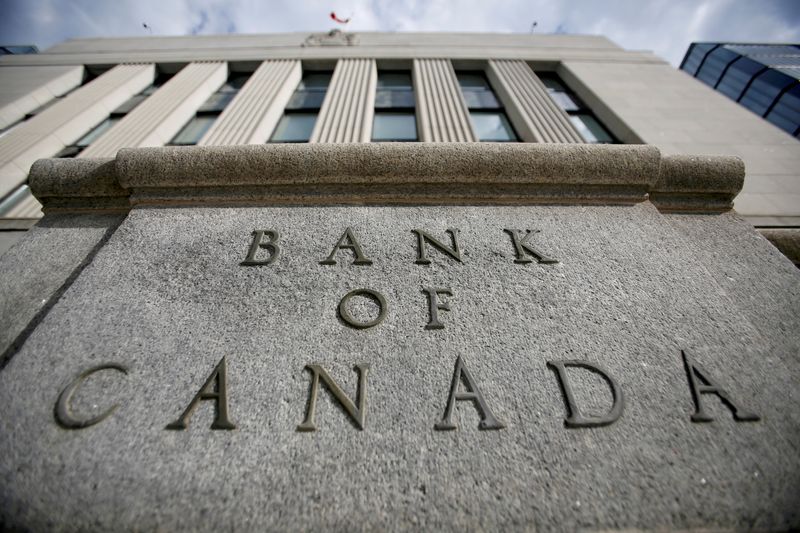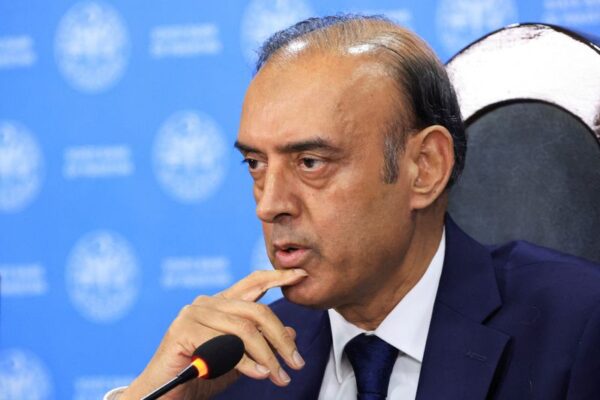Bank of Canada says economic slack not yet absorbed, but ‘getting closer’
© Reuters. FILE PHOTO: A sign is pictured outside the Bank of Canada building in Ottawa, Ontario, Canada, May 23, 2017. REUTERS/Chris Wattie By Julie Gordon
OTTAWA (Reuters) – The Bank of Canada will not raise its benchmark interest rate until the slack in the country’s economy is absorbed, which has not yet happened but is getting closer, Governor Tiff Macklem said in a newspaper opinion piece on Monday.
Macklem also noted that while inflation risks have increased – driven by pandemic-induced demand shifts, supply disruptions and higher energy prices – the central bank continues to view the recent dynamics as transitory.
“For the policy interest rate, our forward guidance has been clear that we will not raise interest rates until economic slack is absorbed. We are not there yet, but we are getting closer,” Macklem wrote in an op-ed for the Financial Times newspaper.
He added that the central bank’s policy framework – a flexible inflation target focused on the 2% midpoint of a 1-3% control range – means Canadians can be confident that inflation will be kept under control, while supporting a full recovery.
“What our resolve does mean is that if we end up being wrong about the persistence of inflationary pressures and how much slack remains in the economy, we will adjust. Our framework enables us to do just that,” Macklem said.
The Bank of Canada’s inflation target expires at year-end and work is under way to decide, jointly with the Liberal-led federal government, whether to keep the current framework or try an alternative.
The main opposition Conservatives on Sunday called for a swift renewal of the existing target amid escalating inflation.
Inflation is soaring as countries around the world rebound from the pandemic, putting pressures on global supply chains. Canada’s inflation rate rose to 4.4% in September and is expected to hit 4.7% in October, with that data due on Wednesday.
The Bank of Canada signaled last month that its first rate hike could come as soon as April 2022, though money markets are betting on a hike in March, with a total of five in 2022.
The Canadian dollar was trading 0.2% higher at 1.2517 to the greenback, or 79.89 U.S. cents.












 Bitcoin
Bitcoin  Ethereum
Ethereum  Tether
Tether  XRP
XRP  USDC
USDC  Solana
Solana  TRON
TRON  JUSD
JUSD  Figure Heloc
Figure Heloc